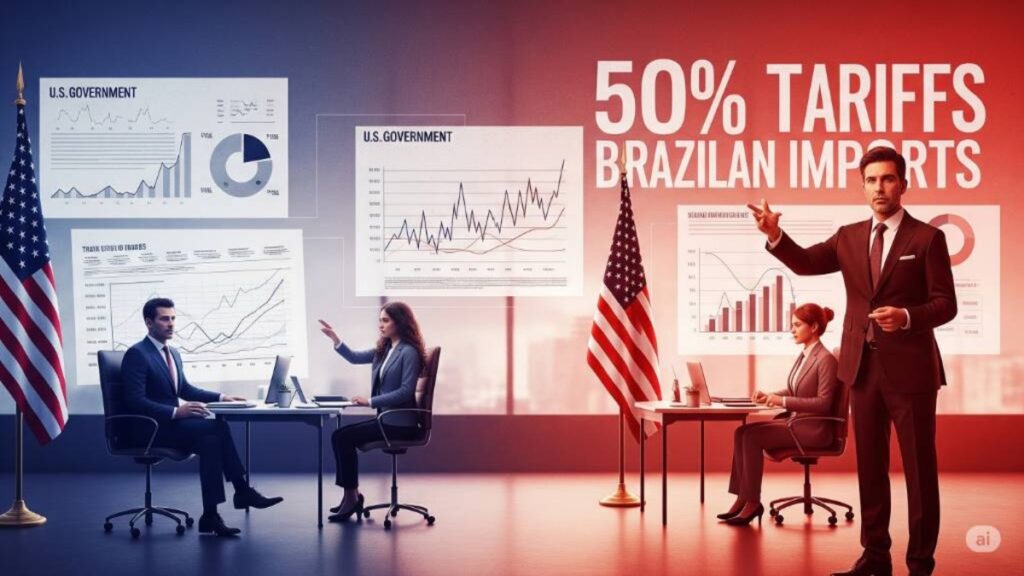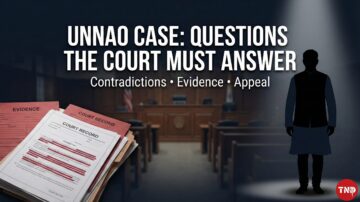
In a dramatic escalation of global trade tensions, the United States has announced a sweeping new policy imposing 50% tariffs on Brazil, affecting nearly all Brazilian exports to the American market. The move, which has shocked international observers, was confirmed via an official letter from the White House addressed to Brazilian President Luiz Inácio Lula da Silva on July 9, 2025.
- Why the U.S. Is Imposing 50% Tariffs on Brazil
- Economic Consequences of 50% Tariffs on Brazil
- Retaliatory Measures Likely from Brazil
- U.S. Calls Brazil Relationship “Far From Reciprocal”
- Exemptions for U.S.-Based Brazilian Companies
- Global Reaction to the 50% Tariffs on Brazil
- Political Implications for Bolsonaro and Lula
- What Happens Next?
- Final Thoughts
This trade decision, the most aggressive taken by the U.S. against a major Latin American partner in years, stems from what Washington calls a violation of free speech rights, unfair trade practices, and recent judicial actions in Brazil perceived as hostile to American interests.
Why the U.S. Is Imposing 50% Tariffs on Brazil
The decision to impose 50% tariffs on Brazil is rooted in multiple political and economic grievances. The U.S. government cited the treatment of former Brazilian President Jair Bolsonaro, calling his prosecution an “international disgrace” and a politically motivated “witch hunt.” According to the letter from the U.S. administration, Bolsonaro, described as a “respected leader,” is being unfairly targeted by Brazil’s judiciary, including the Supreme Court.
Further, the letter accuses Brazil of infringing on free speech and electoral freedoms, particularly referencing censorship orders aimed at U.S. based social media platforms. These platforms were allegedly threatened with massive fines and eviction from the Brazilian market for failing to comply with judicial directives.
“The way that Brazil has treated former President Bolsonaro, a highly respected leader throughout the world during his term, including by the United States, is an international disgrace,” the letter states. “This trial should not be taking place.”
Economic Consequences of 50% Tariffs on Brazil
The economic fallout of the 50% tariffs on Brazil is expected to be significant, both for Brazilian exporters and American importers. The tariffs will apply to all goods shipped from Brazil to the United States, irrespective of existing sectoral tariffs. Goods transshipped through third countries will also be subjected to the higher tariff if they are found to originate from Brazil.
Brazil is a major supplier of products such as iron ore, soybeans, beef, coffee, and ethanol to the U.S. market. The new tariff structure threatens to disrupt these key export sectors, potentially raising prices for American consumers and reducing export revenues for Brazilian producers.
U.S. importers, particularly in the agriculture and steel industries, have already expressed concern over the policy, warning of potential shortages and cost hikes.
Retaliatory Measures Likely from Brazil
The Brazilian government has not yet issued an official response to the tariffs. However, sources within the Ministry of Foreign Affairs suggest that retaliatory measures are being discussed, including potential tariffs on U.S. tech and agricultural imports.
Brazilian economic analysts have described the tariffs as “punitive and politically motivated,” warning that the move could spark a broader trade war between the two largest economies in the Americas.
President Lula, who has defended Brazil’s legal system and rejected any political bias in Bolsonaro’s prosecution, is expected to make a public address within the coming days.
U.S. Calls Brazil Relationship “Far From Reciprocal”
The U.S. letter further claims that the trade relationship with Brazil has been “far from reciprocal,” citing Brazil’s use of non-tariff barriers, tariff policies, and trade protectionism. The letter emphasizes that the U.S. has waited years for reforms that never materialized.
“We must move away from the longstanding, and very unfair trade relationship engendered by Brazil’s tariff and non-tariff policies,” it reads.
By enacting the 50% tariffs on Brazil, the U.S. administration is signaling a broader intent to rebalance trade relations globally, echoing similar trade tensions witnessed in past administrations with China and the European Union.
Exemptions for U.S.-Based Brazilian Companies
Interestingly, the letter clarifies that Brazilian companies manufacturing within the U.S. will not be affected by the 50% tariffs on Brazil. Instead, they will be encouraged to continue operations domestically, with promises of expedited approvals and regulatory support.
This could open doors for Brazilian firms to consider relocating or expanding their operations to the U.S. to avoid the punitive tariffs. However, such transitions are costly and time consuming, and it remains uncertain how many businesses would take that route.
Global Reaction to the 50% Tariffs on Brazil
The announcement of 50% tariffs on Brazil has triggered concern across international trade organizations and allied nations. The World Trade Organization (WTO) is reportedly reviewing the legality of such unilateral tariffs under global trade rules.
Meanwhile, Latin American countries like Argentina, Chile, and Mexico are closely watching the situation, fearing it may signal a new era of protectionism in U.S. foreign trade policy.
European markets have also reacted, with many investors moving cautiously due to fears of wider geopolitical tensions and uncertainty in global commodity supply chains.
Political Implications for Bolsonaro and Lula
The reference to Jair Bolsonaro in the White House communication is politically charged. The U.S. government’s apparent support for the embattled former president could complicate diplomatic relations, especially given Bolsonaro’s controversial record on democracy, environment, and civil rights.
President Lula’s administration, which has prioritized rebuilding international credibility and progressive reforms, may now face growing pressure from both domestic opposition and international partners.
The U.S. support for Bolsonaro is also likely to be a talking point in Brazil’s internal politics, where polarization remains intense following recent elections.
What Happens Next?
The 50% tariffs on Brazil will officially go into effect on August 1, 2025, unless a diplomatic solution is reached before then. Industry groups in both countries are lobbying for dialogue and compromise to avoid long term damage.
American officials have hinted that the tariffs could be lifted if Brazil “reforms its censorship practices” and ensures a fair judicial process for Bolsonaro. However, no formal conditions have been publicly listed, and negotiations, if underway, are being kept behind closed doors.
Final Thoughts
The imposition of 50% tariffs on Brazil marks a critical moment in U.S.-Brazil relations. It reflects rising geopolitical tensions, dissatisfaction over free speech issues, and growing assertiveness in trade policy. As global markets react and diplomatic channels buzz with activity, the world watches closely to see whether the two hemispheric giants will reconcile or descend into a prolonged trade conflict.
Stay Connected with The News Drill for more updates on international trade policies, diplomatic shifts, and geopolitical developments:
Contact us: contact@thenewsdrill.com
Submit tips or reports: editor@thenewsdrill.com or visit our contributor page.
















